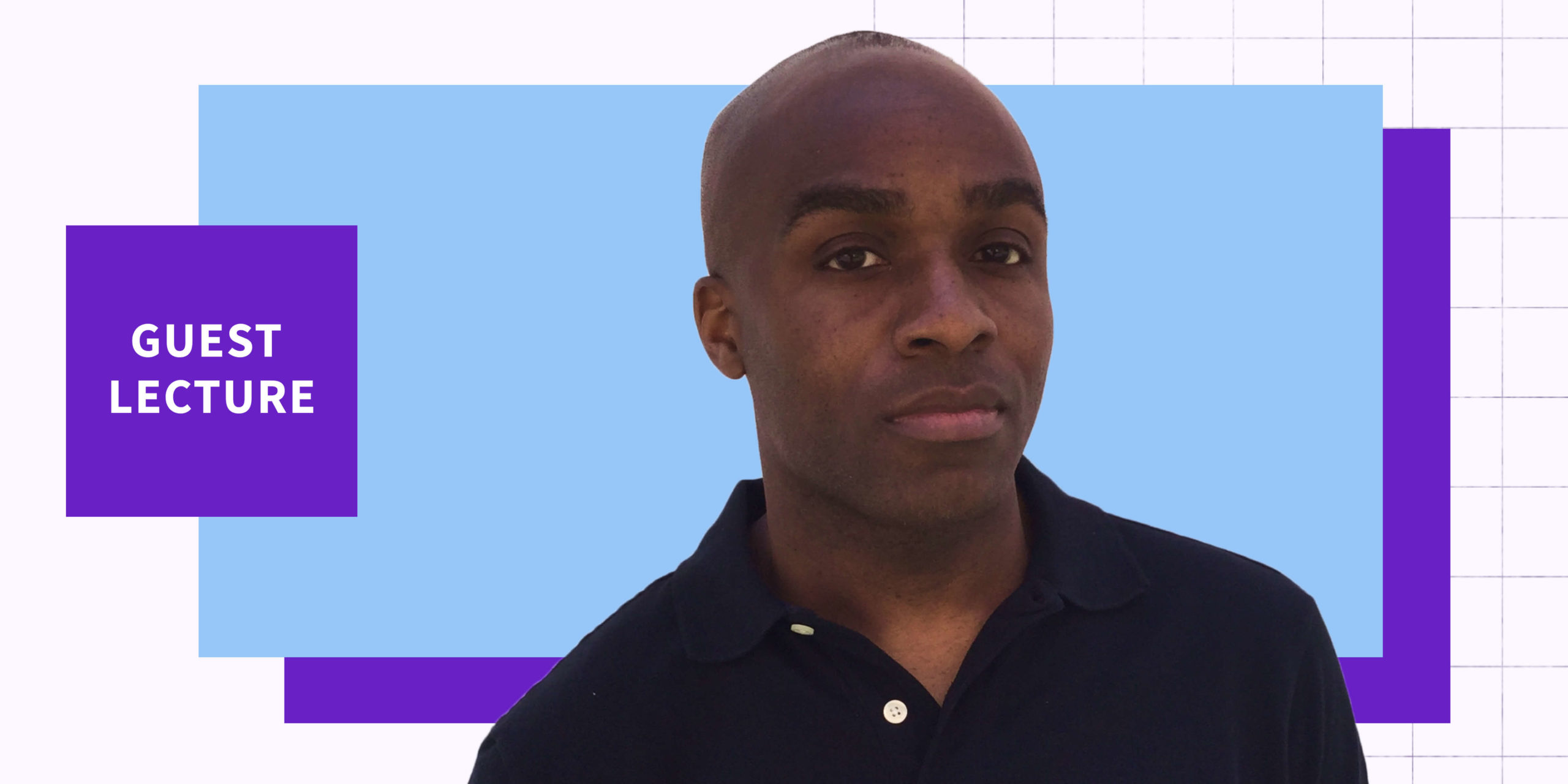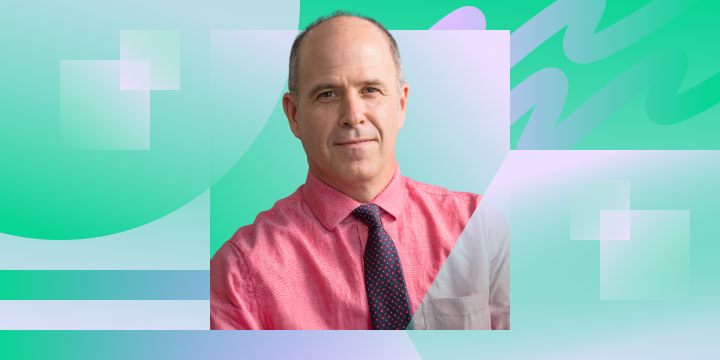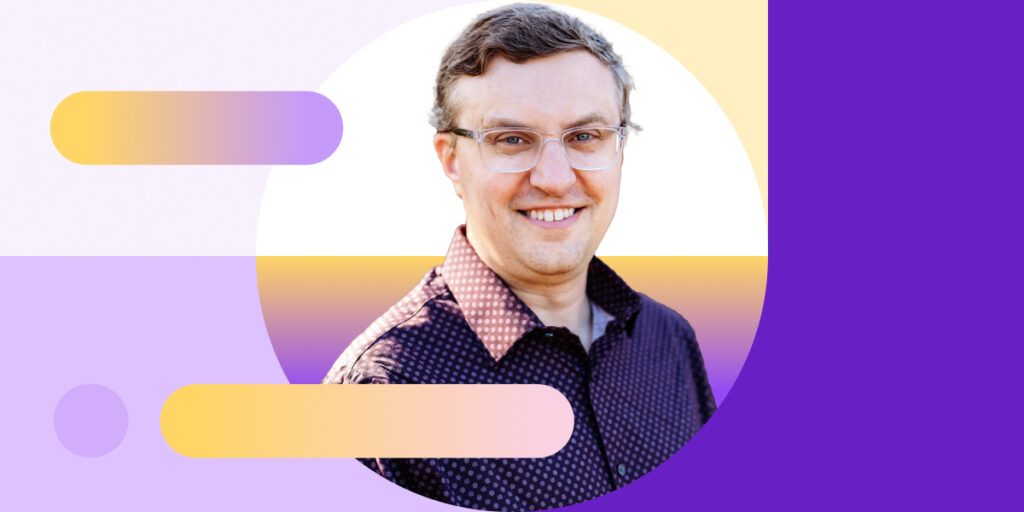Generation Z are among the most diverse learners in history. So why is it that much of academia continues to overlook the voices of racialized and historically excluded groups? Dalton Higgins, Music Professional in Residence of the Professional Music program at Ryerson University (soon to be renamed), took note and was determined to make education feel more relevant, practical and diverse for students. His solution? Creating a new university course titled “Deconstructing Drake and The Weeknd” which builds upon the massive success stories of these two Canadian music legends.
We recently sat down with Higgins to understand how the hip hop icons can help bring a much-needed dose of diversity to academia while fostering entrepreneurial skills among today’s learners.
How did you get started in higher ed?
I’m not a traditional academic by any stretch. I’ve been documenting Black music and hip hop culture for close to 20 years. I’ve worked in the music industry in various capacities, as a music presenter or booker, as an artist manager touring artists across Canada, and I own an independent publicity company.
Rap and R&B music is rapidly outperforming every other music genre—these two genres combined account for 35–40 percent of all music consumption today. And when we look at this from a generational point of view, it’s hip hop that reigns supreme on American college campuses. Hip hop as an educational tool is what led me to academia, where I’ve lectured about these topics at many Canadian universities including locally at the University of Toronto and York University for over a decade.
Where did the concept behind your new course “Deconstructing Drake and The Weeknd” come from?
In the U.S., there are a ton of pop culture courses on rock, pop, hip hop and R&B, from Miley Cyrus and Kurt Cobain all the way to Beyoncé and Outkast. But for me, being based in Toronto, the diversity in higher ed is sorely lacking—both on campus and within the curriculum. Drake and The Weeknd are arguably two of the top 10 artists on the planet, so I knew I wanted to teach a course about them and the Black music culture they both occupy. I really wanted to put a mirror up to the reality of what’s happening outside of the classroom and address the fact that rap and R&B will continue to dominate the music landscape, especially for Generation Z.
What makes your new course different from any other course you’ve taught?
- Diversity and culture is at its core: This course is intensely and proudly Canadian and multicultural. We’ll talk about the role that culture plays in the narrative of someone like The Weeknd and how Ethiopian and East African retentions bleed their way into his work. Same goes for Drake and his bicultural and biracial (American Black and Canadian white Jewish) identity.
- Rap lyrics can teach students about literary devices: We’ll deconstruct songwriting styles and lyrics of both artists. What people tend to forget is that Drake is a great writer. In his rhymes, he employs a number of literary devices like metaphors, similes and Iambic pentameter—all of which you would find in a course about English literature.
- An opportunity to arm students with business acumen: Entrepreneurship sits at the center of The Creative School, the faculty in which my course falls under. When you think about Drake, you instantly think about owls, the long line ups outside the OVO store in Yorkdale mall in Toronto and OVO Fest. He’s also a figure who seamlessly blends the world of music and sports, largely with his attachment to the Toronto Raptors. All of these pieces combined make up part of the OVO brand, which we’ll dig into.
How does the Professional Music program bridge the gap between the classroom and the workforce?
The Music Den, which is part of The Creative School, is essentially an incubator for students to develop a product, idea or skill that allows for hands-on learning. This incubator aims to bring together successful music industry entrepreneurs and businesspersons that we’re connected with at the university through our committees, and also provide masterclasses and workshops for aspiring music entrepreneurs. For instance, for students who are interested in developing an innovative app, or maybe their own indie promotional company, we might be able to pair them up with a company like Live Nation in a mentorship-like capacity. The best case scenario is leaving the incubator with a big idea that’s near ready to go to the market, or quite possibly a co-op opportunity in their respective field.
How will your new course help historically excluded or underrepresented students overcome learning barriers and barriers to the workforce?
We have a saying in the Black community: when you see it, you can be it. When you have racialized instructors and thought leaders, both inside and outside of academia, it creates a trickle down effect to IBPOC students. So just by virtue of me or any other racialized instructor teaching courses like this, it sends a strong message to racialized students that they too can aspire to achieve some semblance of success in the industry, in different capacities, because they see it in front of them.
Music education has historically focused on dead white rock and roll male artists. But that’s not what the world is, and it’s not where the music industry is heading either—the world is hip hop, it’s electronic music, it’s R&B, it’s Black and Brown too. What’s happening in the outside world isn’t really what’s being presented in academia, which many believe to be detached from popular culture, and so it’s time for a paradigm shift. We’re trying to reflect these contemporary realities in the classroom to emphasize where this generation is occupying most of their time.
What advice would you give to professors who want to embrace more of an equity mindset in their courses but don’t know where to begin?
If you want to build a smarter department or a smarter course, you’ll find a way to organically include and integrate voices from racialized communities in your curriculum. These groups are so woefully underrepresented in academia it’s almost embarrassing. Token gestures like hiring one scholar of color for your department or hosting the occasional IBPOC guest lecturer to check off a box won’t work. An inclusive classroom also needs an inclusive syllabus. There has to be a more seamless blend where you can see the roots of cultures or backgrounds reflected in your curriculum and reading materials. If you want to correct historical wrongdoings, you have to look at everything through an equity lens.
Dalton Higgins is a publicist, author of six books, and works at Ryerson University (soon to be renamed) where he also teaches the course “Deconstructing Drake and The Weeknd.” His book Far From Over: The Music and Life of Drake is carried in the Rock n’ Roll Hall of Fame and Museum collection in Cleveland, and his best-selling Hip Hop World book is carried in Harvard University’s hip hop archive and research institute. Higgins has contributed chapters and lesson plans to textbooks used in schools focused on popular culture, including Rhymes to Re-Education (Canada’s first hip hop textbook) and the anthology In This Together about Indigeneity and Blackness in hip hop.


